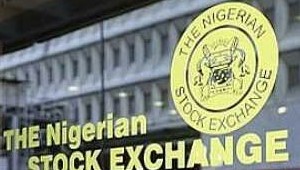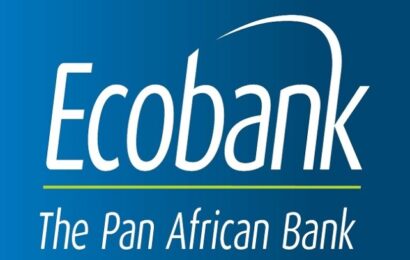
As part of its developmental role, the Securities and Exchange Commission (SEC) has reiterated its commitment to encourage corporates to leverage on the Islamic Capital Market by providing and ensuring an attractive enabling environment.
Director General of the SEC, Mr. Lamido Yuguda stated this at the 2021 African International Conference on Islamic Finance held in Abuja Wednesday with the theme “Infrastructure Financing, Sustainability, and the Future of African Markets 2.0”
Yuguda represented by the Executive Commissioner Corporate Services SEC, Mr. Ibrahim Boyi said the Commission is working assiduously with relevant stakeholders to implement recommendations for the Non-Interest Capital Market sector in line with the objectives of the 10-year Nigerian Capital Market Masterplan (2015-2025) which include developing the segment of the market to contribute at least 25% of the overall capital market capitalization by 2025, with Sukuk contributing 15% of outstanding bond issuances.
Boyi said Islamic finance instruments are globally recognized as acceptable securities, with less Value-at-Risk due to their asset-based and project-tied investment features. Thus, it offers financial products that are safe, competitive and attractive. Many jurisdictions have realized the potentials in Islamic Finance and have positioned themselves to tap the potential benefit of such financing.
He said, “It is noteworthy that since Islamic finance heavily relies on the Islamic Capital Market (ICM) as an investable outlet, products such as Sukuk (Islamic Bond), Islamic REITs (I-REITS), Islamic Funds (I-Funds) and Exchange-mirrored Traded Funds (Islamic Equity Index) could all be offered for the purpose of financing infrastructure.
“Sukuk issuances are increasingly gaining significance as a veritable mode of infrastructure financing. Consequently, a number of countries in the Sub-Saharan region of the continent – Sudan, Gambia, Senegal, South Africa, Ivory Coast, Nigeria, Mali, and Togo- have issued sovereign Sukuks to finance infrastructure.
Boyi said in Nigeria, the SEC has implemented a number of reforms aimed at deepening the non-interest capital market.
“For example, we have reviewed existing regulatory frameworks and introduced new ones. In particular, we issued rules on Islamic Fund Management as well as on Sukuk issuance. These two legal frameworks have encouraged Islamic product innovation with the registration of ten ethical/shariah compliant funds and the issuance of Nigeria’s sub-national Ijara Sukuk by the Osun State government in 2013, which was oversubscribed.
“Also, the Federal Government, through the Debt Management Office (DMO) has so far issued Ijara Sukuk in excess of N350 Billion within the last 3 years. The funds were used to construct and rehabilitate infrastructure development projects across the six geo-political zones of the country.
The SEC Executive Commissioner said the Commission of recent also approved a N30 billion corporate Sukuk Programme and a N10 billion series issuance under the Programme. This marks the first corporate Sukuk issuance to the public; commendably, the proceeds are to be used to finance housing infrastructure. Similar to the sovereign issuances, the corporate issuance was also oversubscribed. The issuance was a landmark in the Market and we are confident that more corporates will begin to access the market.
He said the theme of this year’s conference resonates with a core function of the capital market as the market plays a crucial role in enabling access to medium and long term financing which is better suited to infrastructural development.
“According to the AfDB, Africa requires an annual investment of between $130 to $170 billion annually in infrastructure to reduce its infrastructure deficit. While according to the Global Infrastructure Hub (2020), Africa required infrastructure investment of US$184.03 billion in 2019 and US$190.1 billion in 2020 to close its infrastructure deficits.
“The African continent continues to be challenged by deficits in infrastructure with governments being the major financier of infrastructure. Regrettably, governments’ efforts to finance the sector is constrained by large deficits in budget, rising public debt and debt sustainability concerns” he said.
Boyi disclosed that the Commission is also considering modalities to constitute a Sharia Advisory Council as a body of experts to advise the SEC and the market on non-interest products and their applications.
“Going forward, our focus will be on public enlightenment to encourage sub-national and corporate issuances and stronger capacity building initiatives. This is what informed the idea of hosting 3 webinars on non-interest capital market products in 2021 and more will be organized next year.
“We hope that the State governments represented here will take advantage of this important opportunity to familiarize themselves with the kind of products that can be issued and how to leverage this exciting area of finance to better the lives of our citizens”.
He reiterated the SEC’s commitment to continue to Identify ways of using Non-Interest capital market products such as Sukuk as a tool for financing infrastructural development.
“We are committed to facilitating the growth of the non interest Capital market segment through innovation whilst ensuring a fair, efficient and transparent market.
“We will continue to put in place clear and consistently applied regulatory frameworks and reduce regulatory and operational impediments to engender the smooth functioning of the market”





